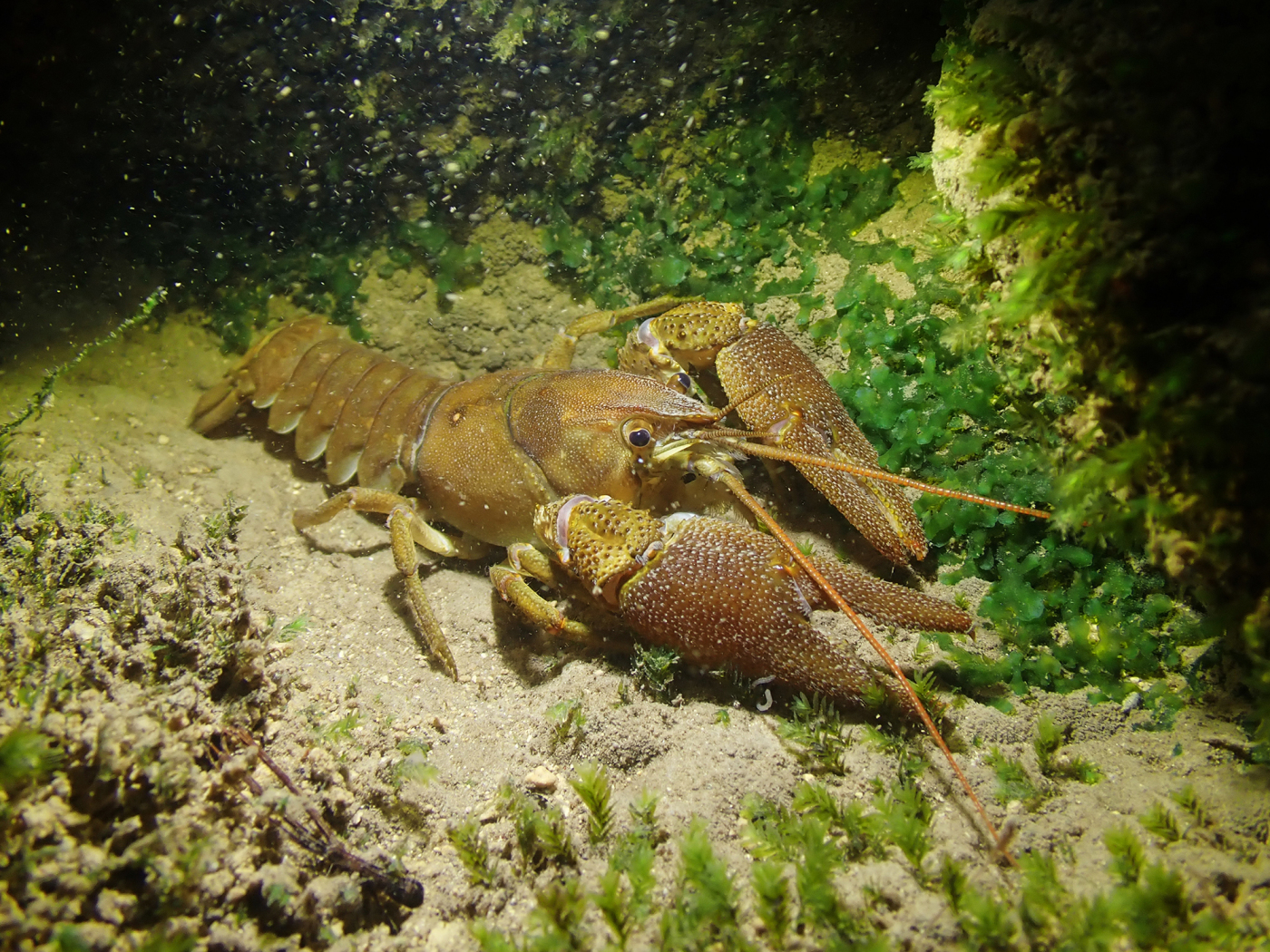
Endangered crayfish reintroduced to Swiss rivers

Two researchers at the University of Applied Sciences Northwestern Switzerland (FHNW) have bred white-clawed crayfish and reintroduced the highly endangered species to the wild.
+Get the most important news from Switzerland in your inbox
The young crayfish serve as food for fish and other aquatic organisms, Raphael Krieg, who initiated the project with Armin Zenker, told Keystone-ATS. Just after hatching, crayfish are barely a centimetre long. Protected breeding makes it possible to overcome this perilous phase of life.
Egg-bearing females were collected in spring from the Lisselle, a tributary of the Birs, and brought to the FHNW breeding facility. Once the young had hatched, the mothers were returned to the Lisselle.
Protected rearing took place in a facility with specially prepared water and controlled feeding. The aim was to set up a breeding station for white-clawed crayfish in the Birs watershed.
The Lisselle is home to a large population of white-clawed crayfish, making it ideally suited to the project. But two years ago, an unknown event led to the death of many crayfish, explain the researchers.
Reintroduction, they believe, will strengthen this population. Despite its proximity to residential areas, many stretches of the Lisselle provide a good environment for crayfish.
The white-clawed crayfish is one of Switzerland’s four native crayfish species. Considered a bioindicator of water quality, it is under serious threat from habitat destruction, pollution and American crayfish, an invasive species introduced to Europe in the 1970s for culinary reasons.
Translated from German by DeepL/mga
This news story has been written and carefully fact-checked by an external editorial team. At SWI swissinfo.ch we select the most relevant news for an international audience and use automatic translation tools such as DeepL to translate it into English. Providing you with automatically translated news gives us the time to write more in-depth articles.
If you want to know more about how we work, have a look here, if you want to learn more about how we use technology, click here, and if you have feedback on this news story please write to english@swissinfo.ch.

In compliance with the JTI standards
More: SWI swissinfo.ch certified by the Journalism Trust Initiative
















![The four-metre-long painting "Sonntag der Bergbauern" [Sunday of the Mountain Farmers, 1923-24/26] had to be removed by a crane from the German Chancellery in Berlin for the exhibition in Bern.](https://www.swissinfo.ch/content/wp-content/uploads/sites/13/2025/12/01_Pressebild_KirchnerxKirchner.jpg?ver=a45b19f3)










You can find an overview of ongoing debates with our journalists here . Please join us!
If you want to start a conversation about a topic raised in this article or want to report factual errors, email us at english@swissinfo.ch.